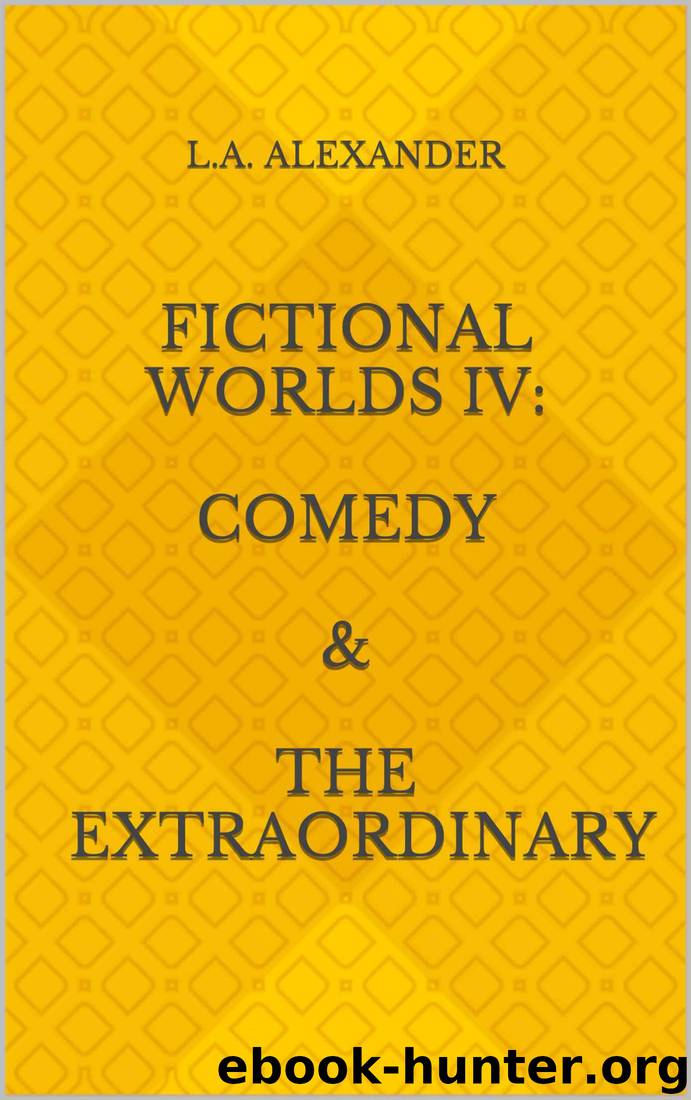Fictional Worlds IV: Comedy & The Extraordinary (Storytelling on Screen) by L.A. Alexander

Author:L.A. Alexander [Alexander, L.A.]
Language: eng
Format: azw3
Published: 2014-05-04T04:00:00+00:00
Bloom. Case Study
Director Sean Walsh (Ireland, 2003), based on the novel Ulysses by James Joyce.
The first adaptation of the novel, Oscar-nominated Ulysses (Joseph Strick, UK, 1967), met with censors’ protests in Ireland and Britain at the time of its release, yet it manifested unbridled enthusiasm for Joyce’s agenda. Conversely, a new interpretation, Sean Walsh’s Bloom, is a debate with Joyce and a disillusioned response to his world of open vistas.
The fictional world of Bloom is made of closed doors and dead-ends – a postulate of postmodernism. The Ordinary Man’s life is labyrinthine. This Ulysses (Stephen Rea), and this reading of the classical novel, is everything Joyce would not have wanted them to be. The film has no pity for the protagonist’s anxieties, i.e. “My center of gravity is displaced”; “He is prematurely bored from self-abuse” – is the type of Joyce’s lines that define this mock-heroic Everyman-Ulysses.
Unlike the inspiring millennial messages of Cast Away and Road to Perdition, conceived on the same threshold of time, Bloom is pessimistic. It offers a sarcastic postmodernist interpretation (rather belated in 2003) of the programmatic modernist novel Ulysses, written in 1911. Every key point of Joyce’s artistic model is turned on its head. The departure from Joyce’s agenda is already obvious in the title. Joyce was exclaiming, as if liberating modern man from the constraints of his existence: “Bloom, you are Ulysses!”; while Walsh’s film responds: “Hah, you think you are Ulysses? Dream on. You are Bloom! Nothing but an ordinary philistine. And you can’t escape it.”
There is no transformation of someone living in an anthill, into a mythic hero – no symbolic death-rebirth; just a quiet permanent coma of Mass Age existence. If Moravia and Godard in Contempt mock modern man for his inability to be Odysseus, to measure up to him, the Irish film mocks Joyce – along with his hero – for thinking that a man can escape. If there is any irony in this film, it is directed at the writer, at the modernist agenda, at all naïve readers, as well as Joyce’s interpreters, who see the novel as an expanding universe.
Bloom is just Bloom, in Stephen Rea’s interpretation, a dull tired fellow, narrow-minded, ineloquent, without imagination, unable to think out of the box, nor to enter other cultural universes. Just like Godard’s modern Ulysses in Contempt, Walsh’s Bloom cannot connect with anything or anybody, while Joyce’s hero can.
Bloom is awkwardly afraid of the police, and immediately feels guilty – just like Mass-Man should feel – when the police approach him. Bloom acts like a petty crook, and talks like a clumsy liar, while he has done nothing wrong. This Bloom is reminiscent of Anton Chekhov’s 1898 Man in a Box [screen version Man in a Shell (Isidor Annensky, Russia, 1939)].
That symbolic human has molded into, and is imprisoned by, his social mask, an unspiritual existence, a “boxed” self. There is no way out for the Mass Man, and no cultural escape routes will help him. In his seminal story, Chekhov foresaw the Mass-Man molding himself into a “servo-unit.
Download
This site does not store any files on its server. We only index and link to content provided by other sites. Please contact the content providers to delete copyright contents if any and email us, we'll remove relevant links or contents immediately.
Shoot Sexy by Ryan Armbrust(17720)
Portrait Mastery in Black & White: Learn the Signature Style of a Legendary Photographer by Tim Kelly(16996)
Adobe Camera Raw For Digital Photographers Only by Rob Sheppard(16969)
Photographically Speaking: A Deeper Look at Creating Stronger Images (Eva Spring's Library) by David duChemin(16683)
Bombshells: Glamour Girls of a Lifetime by Sullivan Steve(14054)
Art Nude Photography Explained: How to Photograph and Understand Great Art Nude Images by Simon Walden(13031)
Perfect Rhythm by Jae(5398)
Pillow Thoughts by Courtney Peppernell(4271)
The Book of Joy by Dalai Lama(3976)
Good by S. Walden(3548)
The Pixar Touch by David A. Price(3431)
A Dictionary of Sociology by Unknown(3073)
Fantastic Beasts: The Crimes of Grindelwald by J. K. Rowling(3051)
Stacked Decks by The Rotenberg Collection(2880)
Humans of New York by Brandon Stanton(2867)
Read This If You Want to Take Great Photographs by Carroll Henry(2704)
On Photography by Susan Sontag(2631)
Insomniac City by Bill Hayes(2545)
Photographic Guide to the Birds of Indonesia by Strange Morten;(2527)
